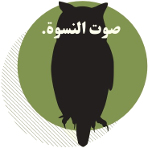
Remember the days when colors belonged to us all?
A few years ago my sister bought nifty travel mugs for the family. My sister got the pink one, my mom the blue one… I got the orange one. I was thankful, but I cringed. Orange? Can’t I have another color? No, the orange one was for me. I didn’t cringe because of my particular political leanings, I cringed because I knew that this mug would not go unnoticed. She said that it was ok, since I was going to be living abroad for a year. It wouldn’t be a problem there.
See, in Lebanon, colors are apparently not free for all. Political parties have hijacked many of our most common colors. And for one reason or another, orange seems to be the one that is most readily identified with a political party, one that is loved by many, and of course hated by many as well.
I did go abroad, and the orange travel mug became my loyal companion, keeping my coffee warm and safe on those cold morning bike rides to class. But then I returned. And of course, my mug came home with me. I still use it, almost every morning, as I am rushing to work. It is sometimes the only assurance I have that I will be fully awake (or almost) once I reach the office.
It also happens to fit perfectly in my car’s cup holder. That fateful cup holder that protrudes from my dashboard and is just high enough for all the world to see. I cannot count how many times fellow drivers have felt compelled to stop next to my car, roll down their window, and tell me what they thought of what seemed to be my political statement. But I can say with relative certainty that this happens almost every single time I use it.
It is always men, young to middle-aged, who stop to say anything from:
“Are you happy with yourself? Carrying that mug around these parts?” (“These parts” being the main street of Ashrafieh.)
To: “How can you dare use that mug?”
“Why, is it bothering you?” I ask, visibly annoyed yet maintaining my cool.
“On the contrary, I think you are very brave! Bravo.”
Ummm… thanks?
To the more banal: “Nice mug,” accompanied by either a disgusted gaze or a proud smirk.
My mug has made complete strangers either love me or hate me, by virtue of having a color that is apparently owned by a party.
Once, in the midst of the World Cup fever, a fellow driver asked me:
“What does that mug mean?”
“It’s a mug. It means I drink from it.”
“No I mean, is it for Holland or Aoun? I hope it’s for Holland,” he says, almost proud to have made this statement.
“Drive away Rana. Just drive away,” I think to myself. What was he expecting me to say? “Actually mister, it IS for Aoun, I am aouny, wanna fight about it?” as I put on my best tough face (which is really not that tough) and pull my sleeves up? Or perhaps a slightly more eloquent response, such as an elaboration on why if I did support Aoun, I would be free to do so without being subjected to juvenile drive-by bullying, in this “democracy” we are so lucky to live in. Or maybe a historical recounting of all the many concepts, people, parties and countries the color orange has represented in its many years of existence, and that, as such, he should not assume that my using the color so conspicuously in Beirut has any direct bearing on which Lebanese political party I may or may not support. Or, perhaps, an angry one-liner about how sometimes a color is actually just a color.
Many of my friends are well aware of my orange mug adventures, and tell me the solution is simple: just buy another mug. Yes, that does seem pretty simple, thanks for the tip. But why should I feel pressured into making all my public belongings, from clothes to key chains, politically acceptable to all who may see them? Why can’t I have an orange mug without constantly being judged accordingly? Why do I have to give in to this pressure? No, I say, I will keep my orange mug, and people will simply have to start realizing that a color is just a color. But really, this is pointless, because I would have to stop the car and explain that I carry this mug because I like it, because I like the color orange, and not because I support Aoun. Without an explanation I would be hardly making a point. But then I would have to repeat this to a few million people before anything could truly shift. And even then, the most I would hope for is becoming a funny anecdote, “that crazy girl with the mug.”
However, I admit that, like many, I do give in to this pressure. When I buy something which strangers are likely to often see, I consciously avoid colors like orange, because I don’t want another mug debacle. I don’t have the energy or patience, or power for that matter, to attempt to break the link. It is too entrenched in our psyches; these colors will never be just colors anymore. At least not for the next few decades.
So I arrive to the refuge that is my workplace, at long last, and I am no longer a walking target (or should I say, a driving target). But as I undergo the daily car search, performed by 3 or 4 security guards, I am invariably greeted with at least one of them saying either “See, I knew she was with us!” or “Orange? Hmmm…” or sometimes “Where is your mug? You finally wised up, huh?” Yes, thank you. I have seen the error of my ways and changed my mind about local politics and gotten rid of that mug as a symbol of my political rebirth. I am so glad you approve.
Unfortunately, this kind of comment should really not surprise me. This is how we like to see each other. You are either with “us” or with “them.” It makes things simpler, and makes people easier to deal with. A heuristic device, or a mental shortcut, like any other stereotype or prejudgment. Black or white. Or should I say, orange or blue? Or yellow or green or pistachio…? It’s as though we didn’t already have enough objects of contention in this tiny little country. From sex to religion to race, we wear our differences on our sleeves. Must color be added to the list?
In any case, I must admit it is rather interesting that by the time my drive to the office has been completed, I have often already had several conversations, made a few ‘friends’ and collected a couple of ‘enemies’. And this is one thing I love about Lebanon. That people constantly interact. Whether it is a furious scream from the driver behind you, a warm wish from a store clerk, or an inquiry from out-of-towners. We are always in touch with one another, in the best and worst ways. This communication is built into our culture, it is part of our architecture. I like to call it human friction. It may be taxing at times, but I always miss it when I visit a cold city with even colder communication styles.
Here in Lebanon we always seem to have something to say to one another, and as a wise friend has pointed out to me, the abundance of symbols and our shared understanding of them seem to provide us with ample vehicles for such communication. It is likely that our insatiable desire to interact is what brought about the creation of all these symbols in the first place. Even the act of color-coding our divisive political affiliations may therefore serve to simplify, facilitate and induce communication, by creating a shared language of symbolic commonality.
Be that as it may, I believe that we might have crossed the line of over-symbolization. Not everything necessarily represents who we are or what we believe, and symbols often mean different things to different people. In our rush to oversimplify our differences, we risk forgetting this. And so, although I never thought of my orange mug as a symbol, it has indeed become one. It is a quiet protest against the hijacking of our colors, a tiny homage to the days where they were free for all. It says that a color is sometimes just a color, that I am free to use them all, and that, most importantly, my orange is not necessarily your orange. It is an attempt to take my colors back.
Publisher:
Section:
Category:






